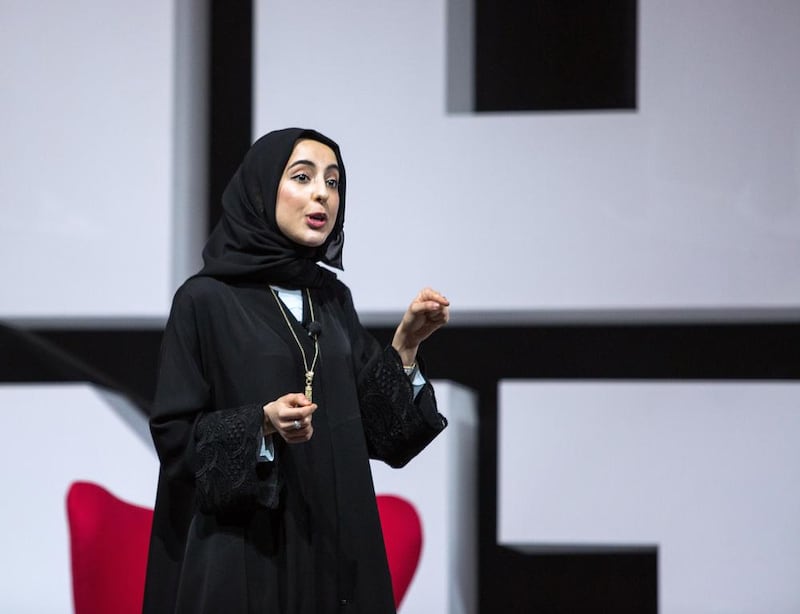ABU DHABI // A developing meritocracy is seeing more young Emiratis overcome challenges in entering certain jobs, a Canadian expert on the Middle East says.
Dr Bessma Momani, a professor in political science and senior fellow at the Brookings Institution and the Centre for International Governance and Innovation, was addressing an audience of 600 young UAE nationals at the Emirates Foundation recently.
“It’s what employers need in terms of having people who will be critical thinkers and entrepreneurs,” Dr Momani said.
“Young Emiratis know they have challenges in terms of entering certain sectors, whether it’s assumptions made about them because of the privileged position they’re in that they have to overcome.
“It also happens with their parents because the education they get may lead them down a path that isn’t the typical road taken and they may not go into the same professions previous generations thought were valuable.”
Dr Momani has written eight books about the Gulf and Middle East diplomatic relations.
Her latest novel Arab Dawn, written after the Arab Spring, tackles an improved change in young people’s mentality and a more progressive, educated, inquisitive and cosmopolitan social culture among regional youth.
“I see in the UAE some of the buddings of that and the youth here are definitely trying to make their mark,” she said. “They want to be recognised for their individual talents.
“Many of them are very educated and confident but, of course, that’s not always enough and they still have a lot of market-based obstacles in their way.”
Dr Momani said shifts in the way younger generations were engaging with the world around them was happening across borders.
“There is a yearning across the Arab region for youths to have a more involved say in public policy, to ask their governments and listen to their input,” she said.
“They are far more educated than the previous generations, they are more likely to seek knowledge and they no longer go to their parents for information.
“They don’t expect people of authority to be more knowledgeable and they’re far more questioning.”
Dr Momani said the UAE was on the right track after it reshuffled its Cabinet this year and introduced eight members in their 20s and early 30s, including the Minister of State for Youth Affairs, Shamma Al Mazrui, 22.
“I was flooded by lots of young Emiratis saying that’s exactly how they feel,” Dr Momani said. “They want to have a conversation and debate issues like religion and their role in society.
“It’s not a sign of disrespect, it’s their way of getting to understand issues better and formulate their opinion. They want to be hard workers and they have a respect for meritocracy.”
Saeed Al Nofali, 33, from Abu Dhabi is one of those examples.
“I think the move of allowing youth to have their say is important because the UAE is a very young nation so having our view really provides a direction of where we are going,” said Mr Al Nofali, who works in telecommunications.
“A young mind is more energetic and if you look at young Emiratis now, you will see a lot going for higher education.”
He said times had changed since his parents’ generation.
“The late Sheikh Zayed previously said he had two things to give to his people,” he said. “For the younger is education and for the older is money to start their business, because he believed these were two vital things for UAE nationals to progress.”
Although the pay is not as attractive, Mr Al Nofali said the shift into the private sector was a good learning experience for when he started his own business.
“Working for a private company will help you excel in that business mindset because you move with the market,” he said. “In the Government it’s different because you’re part of a big machine. This is more challenging.”
Hessa Al Nuaimi, from Ajman, agreed.
“Having your own business or working in the private sector is an incredible experience that every young Emirati should go through,” Ms Al Nuaimi said.
“We live in a different age where what used to be normal isn’t any more, and it’s important for us to be able to work in different situations to be more adaptive to any situation in the future.”
cmalek@thenational.ae






